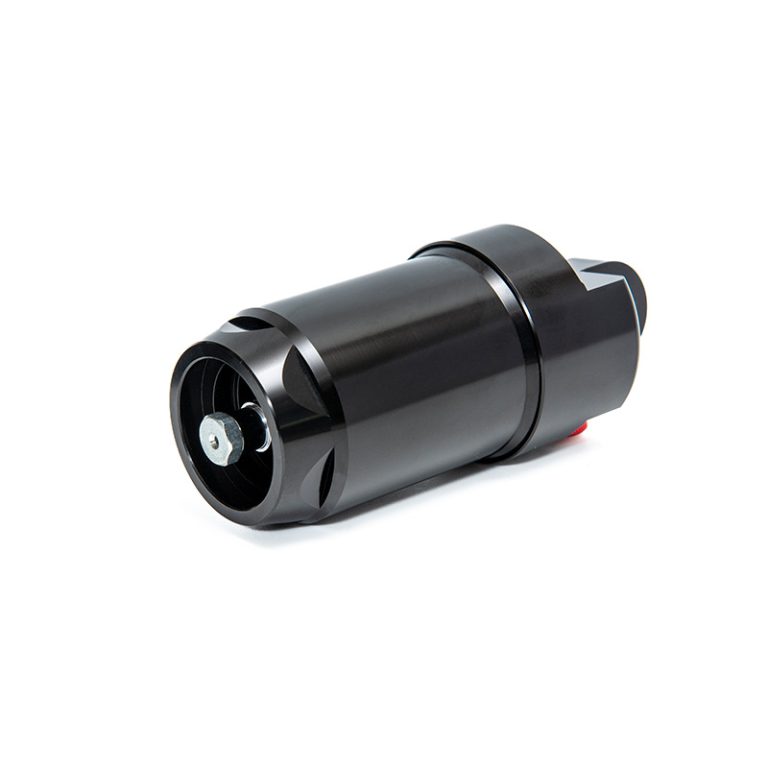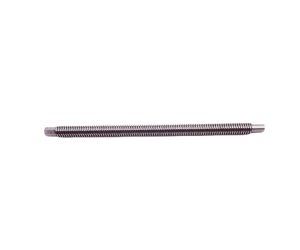As we explore the fascinating realm of precision machining and manufacturing, it becomes evident that this field is not just about sophisticated machinery and specialized procedures. It stands as a testament to human creativity, technical expertise, and an unwavering quest for perfection. From the sleek, high-performance parts driving tomorrow's vehicles and aircraft to the intricate, feature-rich gadgets that mold our daily routines, the influence of precision manufacturing is deeply embedded in the very essence of contemporary industry.
I. Genesis of the Micron: Where Chaos Yields to Control
Modern industry, a chaotic ballet of supply and demand, finds its paradoxical equilibrium in the hyper-precise world of machining. Here, within the seemingly sterile confines of controlled environments, the unpredictable dance of raw materials is choreographed into a symphony of micron-level accuracy. This is not mere fabrication; it is the alchemical transmutation of formless potential into components of breathtaking precision, the very sinews of technological advancement. From the micro-engineered heart of a quantum computer to the colossal turbines driving global energy grids, the unseen hand of precision machining shapes our world, a testament to human ingenuity's relentless pursuit of control over the inherently chaotic.
II. A Chronological Fracture: Echoes of Precision Through Time
The quest for precision, a Sisyphean struggle against the inherent imperfections of the material world, is not a recent phenomenon. The intricate clockwork mechanisms of the 18th century, testaments to a painstaking artistry, foreshadowed the digital precision of today. Each incremental advancement, each technological leap, represents a fracture in the chronological narrative of manufacturing, a rupture through which new possibilities emerge, challenging the very definition of what is achievable. The relentless pursuit of the unattainable – perfect accuracy – fuels the engine of innovation, driving us ever closer to a hypothetical state of absolute control.
III. The Algorithmic Oracle: Unveiling the Machinery of Precision
The contemporary landscape of precision machining is a testament to the power of algorithmic control. CNC machines, guided by intricate digital blueprints, perform balletic feats of material manipulation, shaping metal with a precision that transcends human dexterity. These are not mere tools; they are computational oracles, interpreting the abstract language of design and translating it into tangible reality. Coordinate measuring machines, the guardians of dimensional integrity, stand as silent sentinels, verifying the flawless execution of the algorithmic dance. The synergy between human expertise and computational power creates a feedback loop of constant refinement, pushing the boundaries of what is possible, blurring the lines between the organic and the artificial. This is not simply manufacturing; it is the creation of a new reality, sculpted atom by atom, line by line, within the algorithmic abyss.
IV. Material Matters: A Labyrinth of Substance and Performance
The selection of materials in precision machining transcends mere material science; it's a high-stakes gamble played against the unpredictable nature of matter itself. The practitioner isn't simply choosing from a palette of metals, polymers, and composites; they're navigating a labyrinthine landscape of microstructural intricacies, crystallinity anomalies, and the often-elusive interplay between material properties under extreme stress and dynamic loading conditions. Consider the capricious behavior of titanium alloys under cryogenic temperatures, the insidious creep of high-temperature superalloys, or the unpredictable fatigue life of composites subjected to cyclic loading—each a potential pitfall demanding deep, nuanced understanding. The optimal substance isn't merely identified; it's painstakingly selected, a process demanding both empirical knowledge and a degree of intuitive foresight that borders on prescience.
V. The Alchemy of Manufacturing: Where Human Ingenuity Forges Technological Prowess
While the technological marvels of precision machining are undeniable—the whispering precision of multi-axis CNC machines, the sub-micron accuracy of laser ablation, the almost mystical capabilities of additive manufacturing—it is the human element that transmutes these tools into instruments of creation. The skilled artisans of this field are not mere operators; they are alchemists, transforming raw potential into finished perfection through a blend of honed intuition, rigorous methodology, and a problem-solving acumen that often transcends the limitations of existing knowledge. Their hands, guided by years of experience, translate complex engineering designs into tangible reality, mediating the unpredictable dance between machine and material, constantly adapting to the subtle nuances of each unique process. This synthesis of human ingenuity and technological prowess elevates precision manufacturing beyond mere engineering; it's a creative act of almost mythical proportions.
VI. The Crucible of Quality: Forging Perfection Through Unwavering Scrutiny
Precision manufacturing isn't simply about achieving tolerances; it's about forging an unwavering commitment to perfection, a relentless pursuit of flawlessness that permeates every stage of the process. Quality control isn't a mere afterthought; it's the very crucible in which excellence is refined. The methodologies employed are not simply inspections; they are sophisticated interrogations of the material, subjecting it to a battery of tests – from non-destructive evaluations employing advanced imaging techniques to the brutal honesty of destructive testing – each designed to expose even the most subtle imperfections. The data generated isn't merely analyzed; it's meticulously dissected, feeding back into a dynamic, self-correcting system that constantly strives to refine the process, pushing the boundaries of precision and reliability. This dedication to an almost obsessive level of quality is the bedrock upon which the industry's reputation for excellence is built, solidifying its indispensable role across a vast and ever-evolving technological landscape.
VII. Sustainability's Paradox: Precision's Uneasy Alliance with Ecology
The imperative of environmental stewardship casts a long shadow over precision machining, forcing a precarious balancing act between ecological responsibility and the relentless pursuit of precision. While the adoption of energy-efficient tooling and nascent recycling initiatives offer a veneer of green progress, the inherent energy intensity and material consumption of the sector remain deeply problematic. The industry's embrace of "eco-friendly" materials often masks a complex web of supply chains with their own hidden environmental costs, raising questions about the true efficacy of these purportedly sustainable practices. The challenge, therefore, transcends mere carbon footprint reduction; it demands a fundamental re-evaluation of the industry's operational paradigms, a systemic shift towards circularity that extends beyond superficial greenwashing.
VIII. The Algorithmic Crucible: Forging the Future of Machining
Precision machining is no longer solely defined by the dexterity of human hands; it is increasingly shaped by the algorithmic precision of sophisticated software and the disruptive potential of additive manufacturing. The integration of AI-driven predictive maintenance, while promising increased efficiency, introduces a new layer of complexity, raising concerns about data security and the potential for algorithmic bias to compromise the integrity of the manufacturing process. Furthermore, the rapid advancement of 3D printing technologies, while offering unprecedented design freedom, necessitates a parallel evolution in material science to fully realize its transformative potential and address the inherent limitations of currently available materials. The future of precision machining, therefore, lies not just in technological advancement, but in navigating the ethical and logistical complexities that accompany this rapid technological evolution.
IX. A Geopolitical Tapestry: Precision Machining in a Fractured World
The global reach of precision machining is not a harmonious symphony of collaboration; it is a complex geopolitical tapestry woven with threads of competition, interdependence, and vulnerability. The concentration of manufacturing hubs in specific regions creates both economic opportunities and geopolitical dependencies, exposing the industry to the unpredictable forces of international relations and trade disputes. The intricate global supply chains, while facilitating efficiency, also amplify the risks associated with disruptions, whether stemming from natural disasters, political instability, or unforeseen technological shifts. The future of precision machining, therefore, hinges not only on technological innovation and sustainable practices, but also on a keen understanding of the intricate geopolitical landscape and its inherent uncertainties.
X. Cultivating Excellence: Shaping the Future Machinists
The ongoing triumph and expansion of the precision machining and manufacturing sector heavily rely on the commitment and proficiency of its workforce. This is why the industry places a significant focus on education and professional growth. From tailored vocational courses and hands-on apprenticeships to cutting-edge training in state-of-the-art technologies, precision manufacturing entities are investing in the next wave of adept machinists, engineers, and technicians. By fostering this stream of talent, the industry guarantees that its rigorous standards of quality and innovation will persist for years to come, reinforcing its standing as a pillar of industrial excellence.
FAQs on Precision Machining and Manufacturing
1. What are the key technologies and techniques used in precision machining?
Precision machining relies on several advanced technologies and specialized techniques, including:
- Computer Numerical Control (CNC) Machines: These machines use computer programs to control the movement and operation of tools, ensuring high precision and repeatability.
- Coordinate Measuring Machines (CMM): Used for precise measurement and inspection of parts to ensure they meet exact specifications.
- Sophisticated Software: For process optimization, predictive maintenance, and simulation of manufacturing processes.
- Laser Cutting and EDM (Electrical Discharge Machining): Techniques that allow for very fine detail work and complex shapes.
- 5-Axis Machining: Enables the creation of complex geometries by moving the cutting tool along five different axes simultaneously.
2. How do precision manufacturing facilities ensure the quality and consistency of their output?
Quality control in precision manufacturing is stringent and multifaceted:
- Rigorous In-Process Inspections: Regular checks during manufacturing to catch errors early.
- Dimensional Checks: Ensures parts meet exact size specifications using CMM or other precise measuring tools.
- Statistical Process Control (SPC): Monitors and controls the production process to maintain consistency.
- Destructive Testing: Occasionally used to validate the integrity and performance of components under extreme conditions.
- Advanced Metrology: Use of highly accurate measurement tools and methods to verify part quality.
3. What role do material selection and expertise play in precision manufacturing?
Material selection is crucial in precision manufacturing:
- Understanding Material Properties: Professionals must know the mechanical, thermal, and chemical properties of materials.
- Appropriate Material Matching: Selecting the right metal, plastic, or composite for specific applications ensures optimal performance and longevity.
- Material Expertise: Deep knowledge allows manufacturers to choose materials that best suit the functional requirements and environmental conditions of the final product.
4. How is the precision machining and manufacturing industry addressing sustainability and efficiency?
The industry is adopting several sustainable practices and efficiency measures:
- Energy-Efficient Machine Tools: Using machinery that consumes less power while maintaining high productivity.
- Advanced Recycling Programs: Implementing systems to recycle scrap materials and reduce waste.
- Alternative Eco-Friendly Materials: Exploring and using materials that have a lower environmental impact.
- Lean Manufacturing Principles: Reducing waste and optimizing resource use throughout the production process.
5. What is the global reach and impact of the precision machining and manufacturing industry?
The precision machining and manufacturing industry has a significant global presence:
- International Facilities and Partnerships: Facilities and collaborations across continents enable diverse market reach.
- Serving Multiple Sectors: From automotive and aerospace to electronics and medical equipment, the industry supports critical industries worldwide.
- Cross-Border Collaboration: Promotes knowledge sharing and innovation on an international scale.
- Global Supply Chain Integration: Ensures efficient and reliable delivery of high-quality components globally.
These FAQs provide a comprehensive overview of the technologies, quality assurance measures, material considerations, sustainability efforts, and global impact of the precision machining and manufacturing industry.


